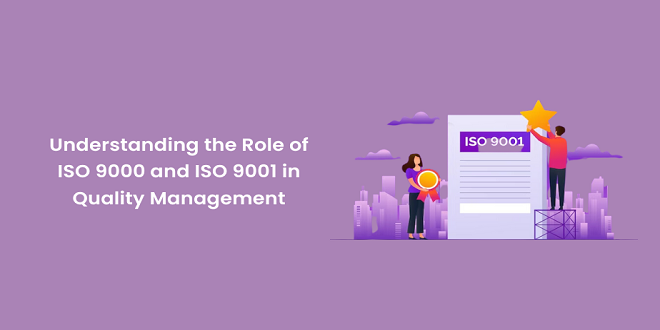Understanding the Role of ISO 9000 and ISO 9001 in Quality Management

In a highly competitive market, organisations strive to provide top-notch goods and services that meet the highest quality standards. Many businesses use the International Organisation for Standardisation like ISO 9001 and ISO 9001. However, these standards are different and server different purposes. Many organisations often wonder the differences between ISO 9000 vs ISO 9001 standards. These standards are crucial to quality management, although they have separate functions. The importance of ISO 9000 and ISO 9001 Certification in quality management will be examined in detail in this blog, along with their distinctions.
Table of Contents
- ISO 9000: The Foundation of Quality Management
- ISO 9001: The Certification Standard
- Key Differences: ISO 9000 vs. ISO 9001
- Focus and Purpose
- Applicability
- Benefits of ISO 9001 Certification
- Conclusion
ISO 9000: The Foundation of Quality Management
ISO 9000 is a series of standards created to give guidelines and best practices for quality management systems, not a certification. It defines the essential ideas, vocabulary, and definitions of quality management that organisations may use to improve their operations and assure customer satisfaction. The ISO 9000 standards encompass ISO 9000, ISO 9001, ISO 9004, and ISO 19011, all of which are focused on maintaining high levels of quality management.
ISO 9001: The Certification Standard
ISO 9001 is a subset of the ISO 9000 standards that defines the quality management system (QMS) criteria. Organisations can pursue ISO 9001 certification to demonstrate their commitment to consistently offering high-quality goods and services. To gain certification, a firm must implement and maintain a QMS that meets the ISO 9001 standards. This internationally recognised accreditation can provide a competitive edge for firms looking to attract quality-conscious clients.
Key Differences: ISO 9000 vs. ISO 9001
While ISO 9000 and ISO 9001 are related and often mentioned together, they serve different purposes and play distinct roles in quality management. Let’s explore the key differences between these two standards:
Focus and Purpose
The ISO 9000 standard specifies broad quality management rules and concepts. It provides an overview of quality management principles, terminologies, and definitions applicable across businesses and sectors. ISO 9000 sets the foundations for creating successful quality management systems and serves as a platform for learning quality management principles.
ISO 9001, on the other hand, is a particular standard that defines the standards for a Quality Management System (QMS). It establishes the requirements for organisations seeking ISO 9001 accreditation. To obtain certification, a firm must comply with ISO 9001 criteria, demonstrating its ability to consistently satisfy client expectations and offer high-quality goods and services.
Applicability
ISO 9000 is not designed to be certified. It gives organisations guidelines and best practices for improving their quality management systems. Businesses frequently resort to ISO 9000 as a reference document when creating or refining their quality management practices.
ISO 9001, on the other hand, is a certification standard. Organisations can pursue ISO 9001 certification to show customers, partners, and stakeholders that they have a strong QMS that adheres to globally recognised quality management standards.
Benefits of ISO 9001 Certification
Obtaining ISO 9001 certification provides various advantages for organisations devoted to providing high-quality goods and services:
- ISO 9001 certification shows clients that a firm is committed to satisfying their requirements and expectations, which leads to improved trust and confidence in the company.
- Implementing ISO 9001 helps simplify operations and identify opportunities for improvement, resulting in increased efficiency and less waste.
- ISO 9001 certification is internationally recognised, helping firms to access worldwide markets and attract clients that value quality and dependability.
- ISO 9001 urges organisations to focus on continuous improvement, fostering innovation and adapting to changing market needs.
Conclusion
Finally, in quality management, ISO 9000 and ISO 9001 are crucial. While ISO 9000 gives broad recommendations and principles for developing effective quality management systems, ISO 9001 establishes the requirements for enterprises seeking certification. Businesses may get a competitive advantage in the market by understanding the differences between these standards and obtaining ISO 9001 certification.




